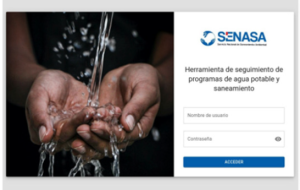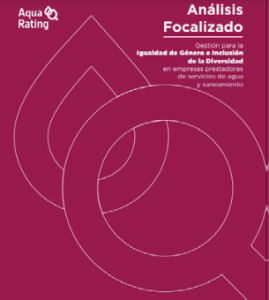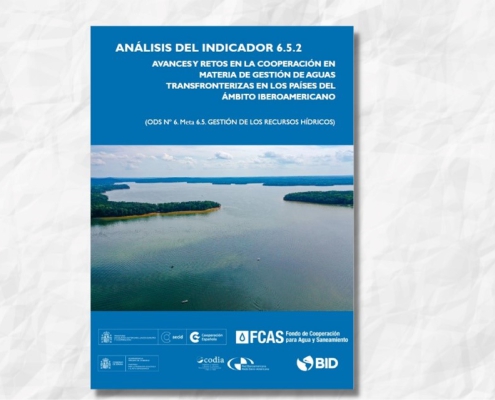Carried with FCAS funds
Technical cooperations carried out through IDB with FCAS Funds
Technical cooperations carried out through IDB with FCAS Funds
Part of the FCAS Funds managed by the IADB are used for technical cooperation aimed at conducting preliminary studies, supporting the sustainability of ongoing actions, or taking advantage of the knowledge generated for the development of future projects in the areas of Human Rights to Water and Sanitation, Gender, IWRM and governance of the sector.
In 2022, the three technical cooperation projects approved the previous year began to be executed, making a total of 11 operations, all of which are currently underway. They are as follows.
1.- Desalination as a water resource alternative in the LAC Region
The objective is to identify opportunities and keys for developing desalination alternatives in the context of water stress and climate change. The intervention reinforces the IWRM theme and focuses on a line of excellent development potential where Spain can have a significant added value. In 2022, a diagnosis has been contracted to analyze desalination in the region, study existing experiences, study in depth the keys that require implementing this type of solution, and identify opportunities for its development. The analyses are being carried out based on interviews and working sessions with plant managers, project implementers, design consultants, government officials, and specialists in the field in institutions (development banks, United Nations, and cooperation agencies).
2. Support for preparing national drinking water and storm drainage plans in Uruguay.
It consists of conducting sectorial studies that contribute to improving and universalizing drinking water, storm drainage, and sanitation services. In 2022, work has begun to support the development of the Strategic Plan for Uruguay’s Stormwater Drainage Subsector (PEDP) under the technical supervision of the National Water Directorate (DINAGUA), part of Uruguay’s Ministry of the Environment, which has a working group on Floods and Urban Drainage (IDU). The PEDP seeks to lay the foundations for future urban stormwater management throughout the country, addressing both flood risk mitigation aspects and the opportunities that the presence of water provides regarding territorial development and socio-urban integration. Specific work has been done in a pilot coastal town, Punta Diablo, where this locality’s diagnosis and sanitation strategy has been developed.
3. Promotion of policies and mechanisms to foster innovation in the water, sanitation, and solid waste sector in LAC. RG-T3859
The purpose is to foster sectoral innovation by identifying possible improvements in policy and governance mechanisms and developing tools to facilitate the strategic management of innovation. This TC goes beyond the purely technological aspect, focusing on identifying strategic management and social innovation issues. This intervention will promote the area of institutional strengthening. It will focus on a key aspect of the sector’s development -innovation- from a perspective of great interest to Spanish Cooperation: public policy.
Work has been carried out on developing and validating a tool for rapid assessment of the maturity of innovative ecosystems in water and sanitation.
4. Support for implementing reforms and institutional strengthening of the water and sanitation sector in Paraguay.
This Technical Cooperation began to be implemented in October 2019 to support the design of the necessary actions to carry out the reforms and strengthen the sector’s governing authority. During 2022, progress was made on the project management instruments for the Drinking Water and Sanitation Program for the Metropolitan Area of Ciudad del Este and the Metropolitan Area of Asunción-Cuenca Lambaré, the design of the sewerage connectivity strategy for Fernando de la Mora has begun; The technical guidelines for the design, construction, operation, and maintenance of the systems have been developed and socialized, the communication strategy is being developed and the development of the Service Development Plan (PDS) for the drinking water and sanitation sector, the methodological guidelines, the application guide for the determination of costs and tariffs, the formulation of three-year development plans and the determination of the value of the infrastructure for drinking water and sanitation service permit holders are in the final stage.
5. Local strengthening for the use of dry ecological toilets - Bolivia.
The objective is to promote the use of ecological toilets in Bolivia’s rural areas by developing a social strategy. It is also intended to consolidate a line of work that will serve as a model for the new rural operations being developed in Bolivia. In 2022, a community diagnosis (298 surveys in 24 communities) and an anthropological study were carried out, which served to define the Strategy for Support and Reinforcement of the use and maintenance of the Dry Ecological Baths in Bolivia. Six pilot communities have been selected to implement the new strategy, after which the pertinent adjustments will be made. It is expected to be completed in 2023.
6. Systematization of experiences and support for developing regional strategies in the rural water and sanitation sector.

The objective is to promote access to safe water and sanitation services in the rural sector of Latin America and the Caribbean through the development of strategies based on the analysis of experiences and within the framework of the SDGs and the Human Rights to Water and Sanitation (HRWSS), with a particular emphasis on service sustainability schemes. These resources supplement $300,000 from the Regional LAIF. In 2021, support for the operation of the Honduran Drinking Water and Rural Sanitation Program concluded through the definition of a sustainability strategy. The regional cost analysis of rural projects and support to SENASA in Paraguay for developing a project supervision tool are being finalized.
7. Strengthening the capacity of small water and sanitation service operators in the region.
This regional cooperation seeks to promote the sustainability of water and sanitation services by supporting small operators through the development of tools and assistance for specific stakeholders.
To date, work has been done on a diagnosis of the training offer for operators to identify opportunities and aspects to be strengthened, with training workshops having been held in Honduras and Argentina. A tool is being developed to register land and link it to hydraulic modeling, and diagnoses and improvement plans are being carried out for operators in Honduras, Peru, Ecuador, and Chile.
8. Transboundary water resources: a water security framework for Latin America and the Caribbean transboundary basins.
This regional initiative supports the development of transboundary water management models using tools that make it possible to carry out diagnoses and shared management and hydrological planning scenarios that minimize conflicts over resource use and make it possible to plan its management in a resilient and sustainable manner. The transboundary issue is fundamental for implementing integrated water resources management in the region. It is an aspect that the Fund wishes to focus on specifically. These resources supplement an additional US$800,000 from the Regional LAIF. To date, work has been done to prepare the analyses to be carried out in the Pantanal, the Amazon, and the Trifinio. Progress has been made in developing the scenario model of the Water-Energy-Food Nexus in the Amazon Basin.
9. Promote gender equality in the water and sanitation sector - regional

This initiative aims to define and develop lines of action to promote gender equity in the water and sanitation sector through specific approaches and tools. In 2022, support for CONAGUA in Mexico stands out. In addition, we had previously supported the development of a Gender and Diversity Module for the Aquarating tool (the rating agency for the evaluation of water and sanitation service providers), which is being tested in two operators, EPMAPS (Quito) and AySA (Buenos Aires). On that basis, the tool will be scaled up with at least five other operators.
10. Support for actions developed within the scope of the CODIA. Regional.
This cooperation was launched to support the Conference of Ibero-American Water Directors (CODIA) in developing strategic actions for the sector in water planning, integrated water resources management, and training. In the training field, the activities are part of the Ibero-American Training Plan (PFI), which is also being carried out with UNESCO in collaboration with AECID’s Intercoonecta and RALCEA. In the analysis area, support is given to analyzing how countries report on the different targets linked to SDG-6.

11. Development of strategies to ensure water, sanitation, and hygiene services in informal settlements. Regional. 1,000,000.
This intervention aims to support partner countries in defining strategies to guarantee essential services in informal urban areas with high health vulnerability. To this end, diagnoses, action plans, and pilot projects will be prepared, considering urban conditions, alternatives for providing water and sanitation services, the legal and regulatory framework, and successful experiences. These guidelines will help define policies and programs aimed at guaranteeing services in these areas and closing gaps in coverage. A regional diagnosis is being carried out on the provision of
The report also includes a diagnosis of the situation of water, sanitation, and hygiene services in informal settlements in the Metropolitan Area of Asunción and Colombia.
In addition, by 2023, we are preparing other Technical Cooperations related to Occupational Safety, support for the sustainability of services, and the development of joint collaboration schemes in Haiti and the Dominican Republic, among others.
Cooperation Fund for Water and Sanitation
Av. Reyes Católicos 4 – 28040 Madrid
dfcas@aecid.es
